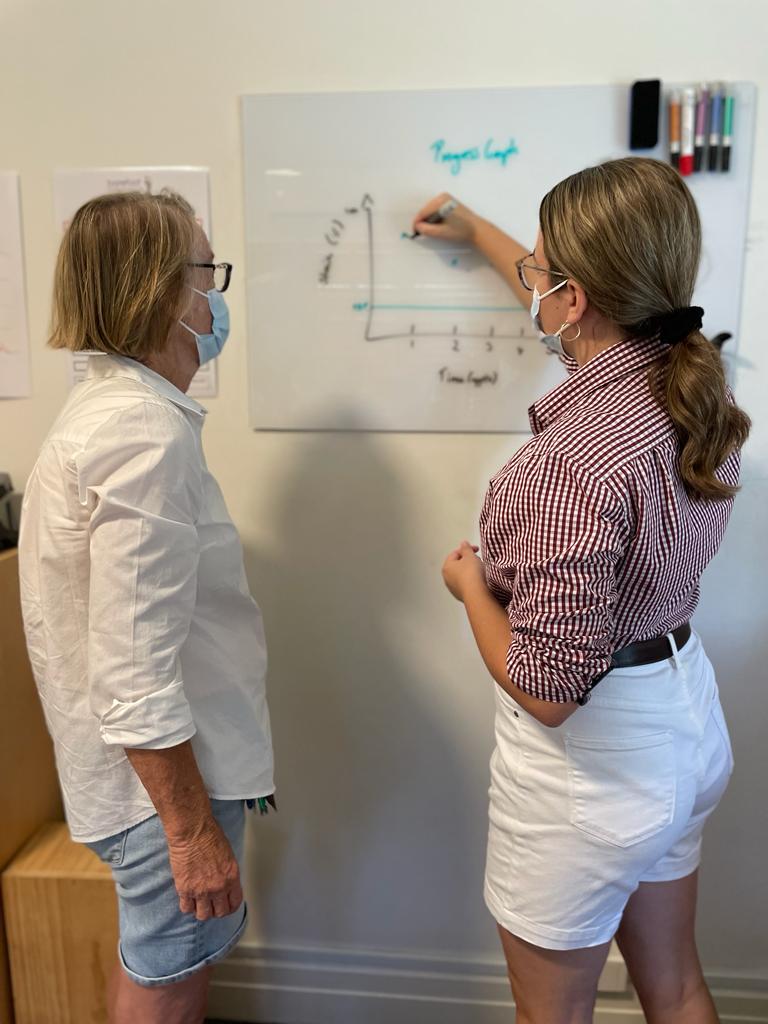What Is Nerve Pain?
Nerve pain is a common condition affecting many people. It can result in significant discomfort and impact on daily life if not treated. It can be the result of a number of causes, may of which can be improved with physiotherapy. What does nerve pain feel like? Nerve pain or nerve irritation can present with a variety of symptoms.
- Tingling or pins and needles sensation – can be anywhere but commonly in the leg or arm
- Burning sensation – can be felt anywhere in the body but especially in the leg or arm
- Weakness – muscles may feel weaker or tasks may feel like they require more effort than previously
- Heaviness – arms or legs may feel heavy to move
- Change in skin sensation or numbness– reduced sensation anywhere in the body
- Feeling of tight muscles that does not improve or gets worse with stretching
- Headaches – there are many causes of headaches, but they can be the result of nerve irritation. [[ See here for our blog on headaches]]
- Sharp or shooting pain
- Achiness in a muscle or joint
- Restricted or unco-ordinated movement – very limited movement or feelings of clumsiness (in the absence of other medical conditions)
- Radiating arm or leg pain – pain that feels like it starts at either the top or the bottom of the arm or leg and radiates along the limb
- Buttock or shoulder blade pain
Causes of Nerve Irritation
Nerve irritation can be caused by muscle or joint problems or more serious conditions. Nerve problems that can be treated by a physio include:
- Sciatica – pain from the sciatic nerve that may start near the lower back or buttock and travel down the back of the leg including the calf and foot
- Radiculopathy – a nerve entrapment at the nerve root when it exits from the spinal cord through the spinal joints. This can occur in the neck or lower back and may involve sensation changes, weakness or pain can present anywhere along the path of the nerve including the arm or leg
- Piriformis syndrome – involves the sciatic nerve as it runs through the piriformis muscle. Often results in buttock and or leg pain
- Carpal tunnel syndrome – involving the median nerve at the inner wrist, where tight muscles or swelling can make it difficult for the nerve to move freely. This is a common condition in computer workers and pregnant women.
Sometimes nerve irritation is caused by disc bulges in the spine. Physiotherapy can still help in the management of this type of nerve pain but it may be accompanied by other treatments including medication, injections or sometimes surgery.
Nerve problems can also be caused by medical conditions such as peripheral neuropathy, multiple sclerosis, stroke and motor neurone disease. While these conditions may also benefit from physiotherapy treatment, medical care is the start point for their management.

Physio treatment for nerve pain
As with most musculoskeletal conditions, physiotherapy for nerve pain should take a multimodal approach – that is, it should include a variety of treatment types. Assessment and treatment should aim to address the underlying cause. At Barefoot Physio, we have specific and sensitive tests that will give us the information to guide our treatment. Treatment for nerve irritation may include:
- Advice and education – understanding what is causing your nerve pain, what activities you may want to avoid in the short term and knowing that most nerve pain will improve is key. The better you understand pain, why it occurs and what in your body is driving it the better your recovery will be
- Manual therapy – gentle mobilisations of the joints where the nerves come out of the spine. ‘Neural interface treatment’ (treating where the nerve interacts with other tissues such as muscles and joints) is aimed at reducing the sensitivity of the nerve in a non-aggravating way. It can also include muscle treatment along the path of the irritated nerve. There are specific gentle nerve tests physios can use to help ensure your body is getting the treatment it needs
- Posture – learning ideal postures and positions for your daily activities (sitting, sleeping, standing, driving) can be helpful for avoiding further aggravation and promoting recovery and minimising the risk of future problems
- Holistic strain management – understanding that pain is not just caused by tight muscles and in fact all kind of “strain” can contribute to the brain producing pain is very important. Looking at your sleep, hydration, stress, nutrition, medical conditions and other factors is an important piece of the puzzle for addressing your nerve pain. No two bodies are the same and your back pain is unique to you
If you are suffering from nerve pain or think you might have nerve irritation, click here to book in to see one of our physios today. If you’d like to read more on Nerve Pain Management follow this link.








Leave a Reply
Want to join the discussion?Feel free to contribute!